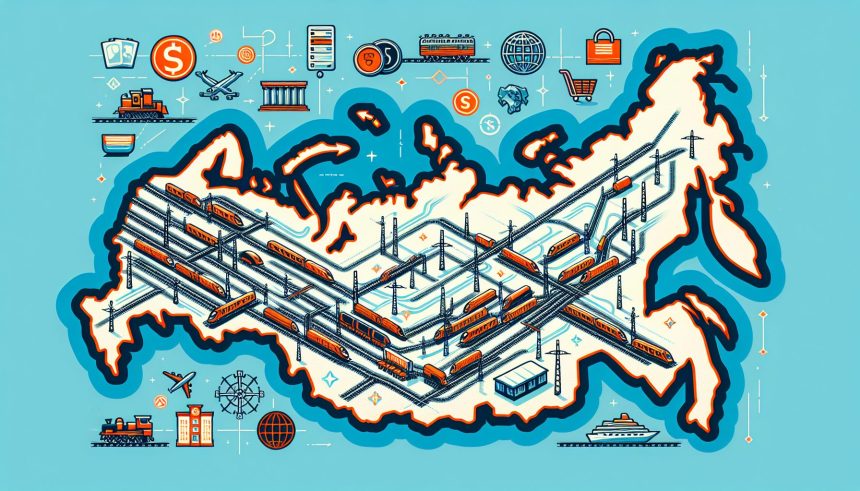In response to growing western sanctions, Russia has shifted its focus to rail commerce, seeking to modernise critical rail lines and strengthening its trade connections with China, India, Iran, and Persian Gulf nations. This strategic shift positions Russia to potentially bypass conventional trade routes, creating a self-sustaining and robust transport network that could bolster the country’s resistance to global economic pressures.
Through improvising these rail lines, Russia aims to facilitate Russo-centric trade. The increased efficiency of these rails could attract global exporters and importers, indirectly improving Russia’s geopolitical ties. It’s clear that enhanced access to Russian markets and resources could benefit the economies of China, India, Iran, and Persian Gulf nations significantly.
Russia’s refocus on rail commerce could indirectly stimulate other sectors. The infrastructure, manufacturing, and technological innovations required for these modernisation efforts could present new opportunities for growth and employment. However, the sustainability of this approach is yet to be determined.
Despite enormous investments required, Russia could potentially see long-term returns, both economically and diplomatically, which provide motivation for its continuing pursuit of modernising its rail commerce. In short, this assertive adaptation strategy aims to ensure Russia’s economic survival and growth despite increasing sanctions.
It’s crucial to observe over the next few years, how these strategies could impact Russia’s economic landscape and the geopolitical dynamics at play. Russia’s concrete plans to strengthen financial connectivity with China, extending to India and Persian Gulf countries, involve the proposed construction of a 100-mile railway. This strategy is expected to increase trade and improve economic relations dramatically.
However, realisation of this large-scale project depends largely on securing sufficient funding and commitment from all parties involved. Given the potential benefits of the project, it may significantly enhance trade and economic relations between these countries, promoting growth and development.
Ultimately, Russia’s move may reinforce its geopolitical stance in these regions. The proposed railway represents a significant milestone in integrating economic activities and strengthening ties between Russia, China, India and Persian Gulf countries. However, it is important to note that the success of this project depends on the implementation of comprehensive internal fiscal reforms, reducing corruption, promoting transparency, and boosting economic productivity.
In conclusion, Russia’s situation is indicative of the complex interplay between international sanctions, diplomatic relations, and national economic policies. It serves as a reminder of the interconnectedness of global economies, and the ripple effects of economic decisions.






